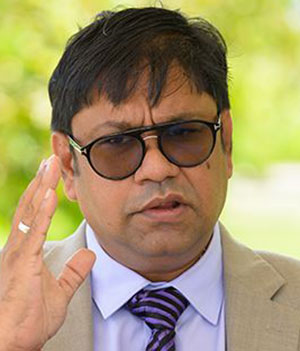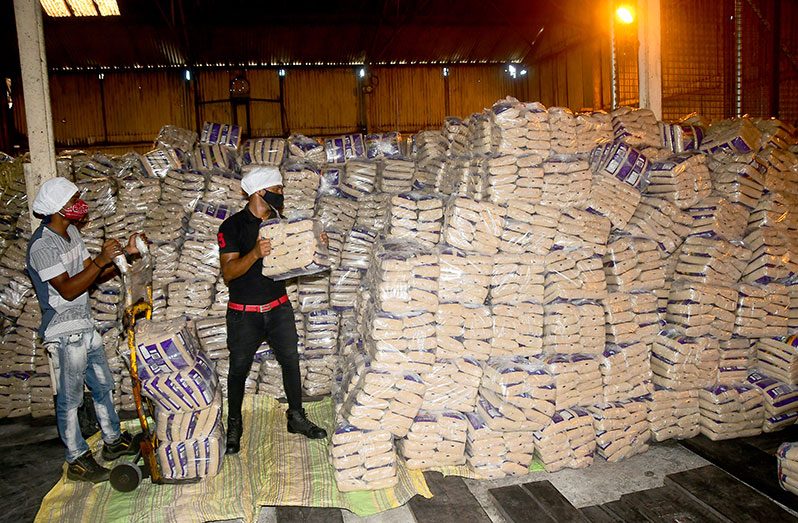OVER the last few months, the Guyana Sugar Corporation (GuySuCo) has been moving aggressively towards making itself more self-sufficient and sustainable. As an almost immediate remedy to tackle the institution’s long existing financial challenges, efforts were made to change the manner in which the corporation sells its sugar.

A decision was taken to reduce the sale of bulk sugar and invest in the packaged product which is in wider demand, and can be sold at a higher cost. In making that switch, the company’s annual losses have plummeted from $2.6 billion to $825 million. This means, that by simply redesigning its marketing and sales strategy, GuySuCo has managed to save approximately $1.7 billion.
“Changing the sales mix is one of our primary short-term strategy [sic], and it has worked,” the corporation’s Chief Executive Officer (CEO) Sasenarine Singh said in an interview with this newspaper on Friday last.
He explained that by having GuySuCo place special emphasis on packaged sugar, the corporation has managed to “unleash some unexploited potential in the revenue stream at very short notice.”
“Hence, reducing the losses,” Singh added.
Elaborating on GuySuCo’s savings, the CEO highlighted that “If we [Guyana] sell[s] sugar on a boat, it goes for US$300 to US$350 per metric ton. If we sell the sugar in a bag, it goes for about$US600 a metric ton.”
However, with the packaged sugar, Singh said that Guyana can sell the ‘Demerara Gold’ for as much as US$700 US per tonne.
He said that to push the ‘packaged-sugar’ agenda, GuySuCo has restarted operations at the Enmore Packaging Plant, and has moved to further expand production at the Blairmont Packaging Plant.
“…and because of that initiative, GuySuCo has been able to reduce its January to May losses from $2.6B to under a billion this year,” Singh reminded.
In another effort to be more efficient and sustainable, GuySuCo is also looking to procure equipment necessary for the implementation of a mechanical harvesting system.
“Mechanical harvesters are becoming mandatory,” Singh related. He explained that so far, the average turnout rate for cane-cutters across the six estates is approximately 70 per cent.
“We need a mechanical harvester to do the other 30 per cent of harvesting for us,” the GuySuCo official indicated.
He said that the industry is moving ambitiously towards achieving 30 per cent mechanical harvesting by 2025, at least across the Albion, East-Berbice Corentyne, and the Blairmont, West Coast Berbice estates, respectively.
He assured this newspaper however, that this will not result in the loss of jobs for cane-cutters, since the mechanical harvester would just be filling the existing gap. “People will move from basic manual labour, to semi-mechanical systems,” Singh envisioned.
He said that the mechanical systems would also allow for the estates to function much better amid unsuitable weather. In another effort to save money, GuySuCo is also looking to diversify its operations and examine the possibility of advancing its renewable-energy initiatives, as recommended in a recently released International Labour Organisation (ILO) report, which examined the socio-economic impact of the closure of four sugar estates by the former government.
In his recommendation, author of the report Dr. Thomas Singh pointed to the need for GuySuCo to advance its cellulosic ethanol production as a source of renewable, low-carbon energy that could possibly boost the very profitability of the sugar industry.
“Consideration must also be given to developing a bio-refinery to produce other high-valued chemicals from lignocellulose, both as a strategy for reducing costs, and also for further diversifying the industry,” Dr. Singh noted.
He said that the bio-refineries would make use not only of bagasse, but will also use other kinds of biomass, including rice straw, sawdust, etcetera. This, he explained, will also allow for the production of several commercial-scale, high-valued co-products that will enhance the profitability of the core cellulosic ethanol facility.
To this end, the GuySuCo official said that the institution has a diversification committee in place to consider all options. Singh said that the industry has a lot that it has to do, but these have to be done with “a lot of common sense.”



.jpg)











